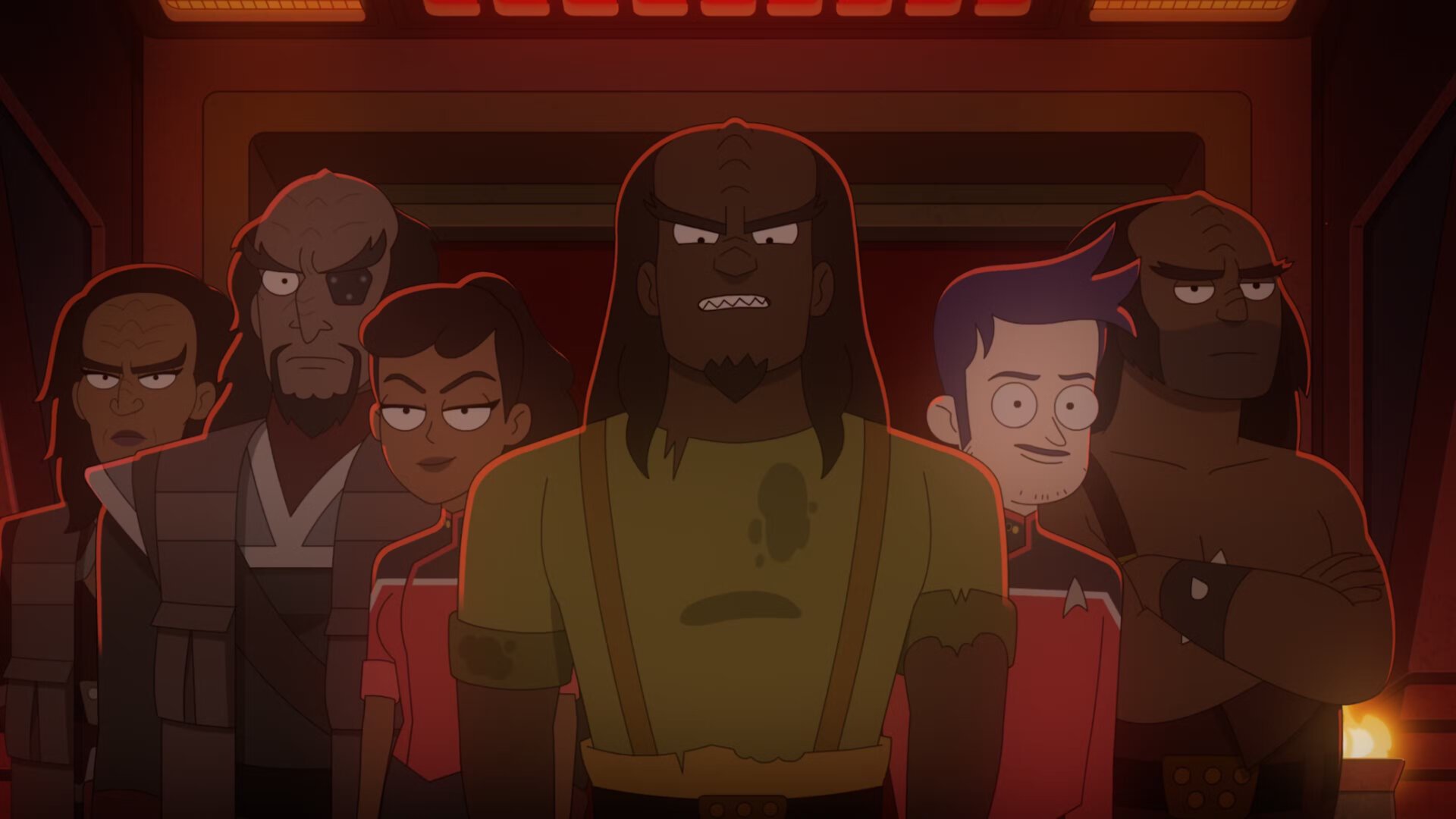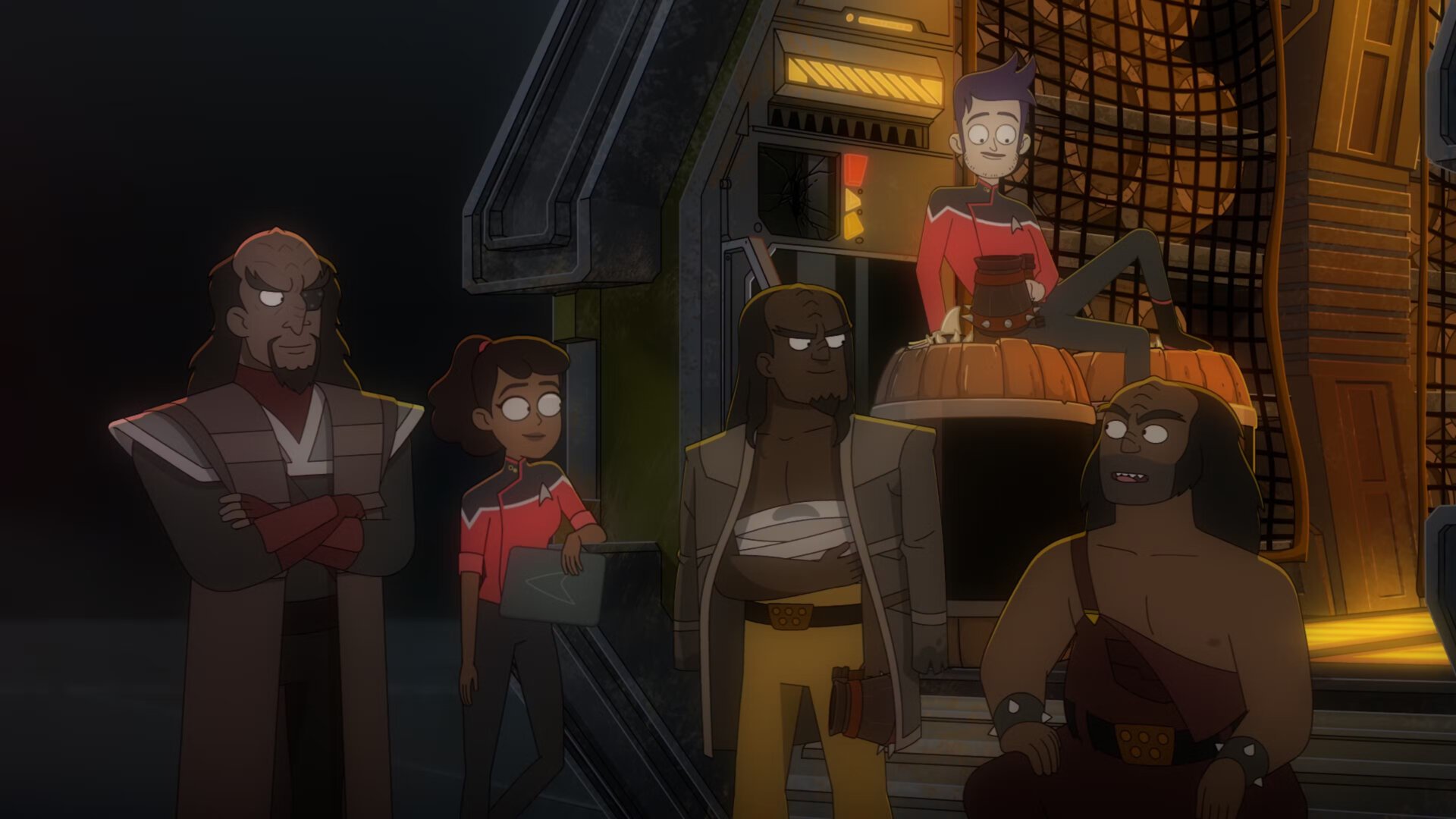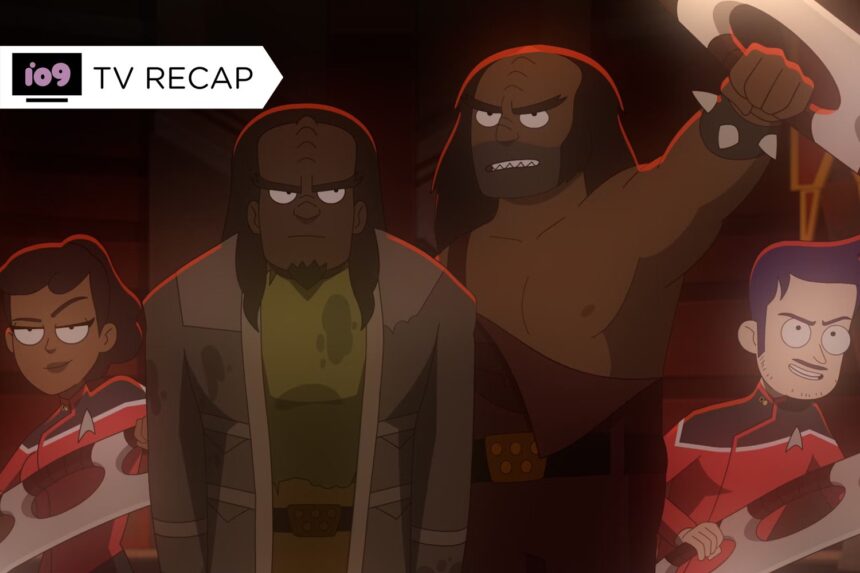As we make our way closer and closer to Lower Decks‘ end this season, we’re getting a lot of reminders of the show at its best—returning to thematic ideas it’s always been strongest on, wrapping up and addressing where it lost its way. It’s perhaps fitting then, that this week it revisits elements from what remains as one of the show’s standout episodes, season two’s incredible “wej Duj”. But it’s not just Lower Decks replaying the hits here: again, it’s reminding us to reinforce its strongest themes, and exploring them through new, wider lenses.
“A Farewell to Farms” (we’re continuing a streak of very good pun titles) is largely about Mariner and Boimler tracking down the former’s Klingon “bestie” Ma’ah on Qo’noS as part of, it turns out, the overarching subplot this season of the fissures in spacetime the Cerritos is tracking here, there, and everywhere. But they find the Klingon in a very different state of affairs compared to when we saw him either in “wej Duj” or last season’s breakout “The Inner Fight”.
Ma’ah is spending his days finding honor in his own form working on his family’s bloodwine farm, but still wrestling with what he wants for himself, especially after his promotion and demotion—at peace, but stuck in place. But when Boimler (facial hair update of the week: folks, we have moustache) uses his own Klingon culture obsession to push Ma’ah into invoking the Ritual of J’ethurgh and reclaim his captaincy, some of his old fire is rekindled, and just as he helped Mariner last season, now it’s our Starfleet heroes’ turn to help Ma’ah figure out his place in the universe.

Just like “wej Duj” before it, “Farewell” succeeds in taking the relatable experience we’ve had seeing our primary lower deckers in Starfleet going through, and enriching its world by bringing that lens to other Star Trek cultures. It’s especially interesting for Ma’ah as we are getting this kind of story in an explicitly Klingon setting—we’ve already seen characters like Worf and B’Elana Torres go through the balance of what it means to have a Starfleet career and also be in touch with Klingon culture, but they had to, by the nature of their positions, go through those arcs in a Starfleet setting, and through a Starfleet lens.
Setting Ma’ah’s story on Qo’noS, and going further and setting it outside the lens of martial service for the most part, not only enriches Klingon culture as we’ve seen it presented in Star Trek up to this point, but gives both Ma’ah as a character and Lower Decks at large a chance to critique and brush against what’s previously been established and expected of the Klingons that came before him.
“Farewell” is about growth for everyone involved—Ma’ah and his brother Malor coalesce their own perspectives on Klingon duty throughout the trials, while Mariner and Boimler get to act as mentor figures to reciprocate Ma’ah helping Mariner realize her self-doubting last season. Even the relatively throwaway B-plot back on the Cerritos, about ship counselor Dr. Migleemo being confronted with two elite critics from his people’s food-obsessed culture, ties back into this, with him pushing back against the disdain they show him for eschewing a traditional Cloacan career.
In each and every one of these characters there’s an understanding of the themes Lower Decks has been underlining throughout this season so far: the universality of these journeys of self-discovery, the need to listen to the people around you when all they really want to do is help come to a sense of shared understanding. It’s all well and good to see those themes iterated on again and again in a typical Star Trek environment like the hallways of a starship, but “Farewell” shows just how much Lower Decks has grown over these last few years by expanding its perspective further across as many aspects of Star Trek as it can: perspectives we know and love, perspectives we’ve yearned to explore more of throughout the series, new perspectives that the show has created to build on what’s come before it.

Lower Decks is entering its last episodes with the acknowledgement of how far its heroes have come and grown, but it’s also repeatedly showing us, with great confidence, how far it has come into its own sense of self—and the great honor it should feel in having found that identity before the journey’s end.
Want more io9 news? Check out when to expect the latest Marvel, Star Wars, and Star Trek releases, what’s next for the DC Universe on film and TV, and everything you need to know about the future of Doctor Who.
Read the full article here












